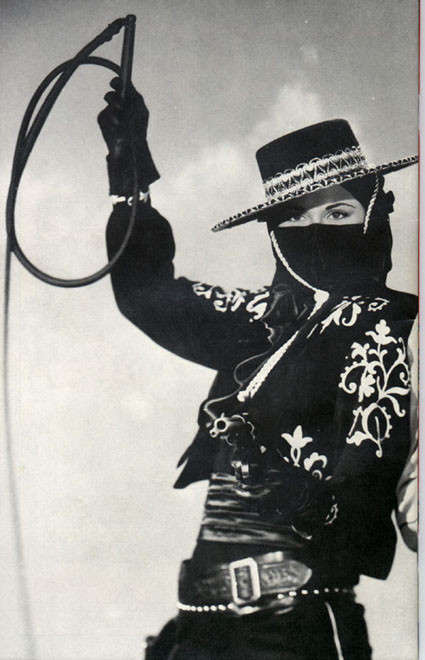Best Foreign Film: Two Days, One Night
The Women Film Critics Circle is an association of sixty-five women film critics and scholars from around the country and internationally, who are involved in print, radio, online and TV broadcast media. We came together in 2004 to form the first women critics organization in the United States, in the belief that women's perspectives and voices in film criticism need to be recognized fully. Here are our WFCC Tenth Anniversary Film Awards:
WOMEN FILM CRITICS CIRCLE AWARDS 2014
BEST MOVIE ABOUT WOMEN
Still Alice
BEST MOVIE BY A WOMAN
Selma: Ava Duvernay
BEST WOMAN STORYTELLER [Screenwriting Award]
Ida: Rebecca Lenkiewicz [Co-screenwriter]
BEST ACTRESS
Julianne Moore: Still Alice
BEST ACTOR
Eddie Redmayne: The Theory Of Everything
BEST YOUNG ACTRESS
Mira Grosin: We Are The Best
BEST COMEDIC ACTRESS
Jenny Slate: Obvious Child
BEST FOREIGN FILM BY OR ABOUT WOMEN
Two Days, One Night
BEST FEMALE IMAGES IN A MOVIE
The Hunger Games: Mockingjay, Part 1
WORST FEMALE IMAGES IN A MOVIE
Horrible Bosses 2
BEST MALE IMAGES IN A MOVIE
Love Is Strange
WORST MALE IMAGES IN A MOVIE
Dumb And Dumber To
BEST DOCUMENTARY BY OR ABOUT WOMEN
Citizenfour
BEST SCREEN COUPLE
The Skeleton Twins
BEST THEATRICALLY UNRELEASED MOVIE BY OR ABOUT WOMEN
Girlhood
BEST EQUALITY OF THE SEXES
TIE: Life Itself, The Skeleton Twins
BEST ANIMATED FEMALE
Winnie: Boxtrolls
BEST FAMILY FILM
Big Hero 6
WOMEN'S WORK/BEST ENSEMBLE
The Homesman
*SPECIAL MENTION AWARDS*
COURAGE IN FILMMAKING
LAURA POITRAS: For bringing the Edward Snowden NSA revelations to light in Citizenfour, and driven into exile in Germany for doing so.
*ADRIENNE SHELLY AWARD: A film that most passionately opposes violence against women
Frontera
Private Violence
*JOSEPHINE BAKER AWARD: For best expressing the woman of color experience in America
Anita: Speaking Truth To Power
*KAREN MORLEY AWARD: For best exemplifying a woman’s place in history or society, and a courageous search for identity
Belle
ACTING AND ACTIVISM AWARD
Rosario Dawson
For her work with The Lower East Side Girls Club; the environmental group Global Cool; the ONE Campaign; Oxfam; Amnesty International; Voto Latino; V-Day, a global non-profit movement that raises funds for women's anti-violence groups; RESPECT! Campaign, a movement aimed at preventing domestic violence; and countless other organizations.
LIFETIME ACHIEVEMENT AWARD
Oprah Winfrey
COURAGE IN ACTING: [Taking on unconventional roles that radically redefine the images of women on screen]
Julianne Moore: Still Alice
BEST FEMALE ACTION STAR
Oprah Winfrey: Selma
Felicity Jones: The Theory Of Everything
WOMAN'S RIGHT TO MALES ROLES IN MOVIES
Jessica Chastain: Interstellar
MOMMIE DEAREST WORST SCREEN MOM OF THE YEAR AWARD:
 *TIE
*TIECharlotte Gainsbourg: Nymphomaniac
Uma Thurman: Nymphomaniac
JUST KIDDING AWARDS
*Best Female Images: Nymphomaniac
*Forty-Plus Female Empowerment Award: For the producers who give women over forty meaningful roles in movies on a regular basis, in an industry where forty is the new ninety-five - and as other than maniacs and witches.
*Merry Macho Award: Seth Rogen and James Franco: For advancing the cause of world peace with their presidential assassination comedy, The Interview. And who knows, while possibly mulling the Interview II sequel comedy, the assassination of US President Obama. And for further extending Hollywood as a wing of the US military and CIA, following leaked email revelations that the US State Department advocated Sony to use the film to help bring down the DPRK government.
BEST LINE IN A MOVIE:
Big Hero 6: 'Stop Whining. Woman Up!'
**ADRIENNE SHELLY AWARD: Adrienne Shelly was a promising actress and filmmaker who was brutally strangled in her apartment in 2006 at the age of forty by a construction worker in the building, after she complained about noise. Her killer tried to cover up his crime by hanging her from a shower rack in her bathroom, to make it look like a suicide. He later confessed that he was having a “bad day.” Shelly, who left behind a baby daughter, had just completed her film Waitress, which she also starred in, and which was honored at Sundance after her death.
**JOSEPHINE BAKER AWARD: The daughter of a laundress and a musician, Baker overcame being born black, female and poor, and marriage at age fifteen, to become an internationally acclaimed legendary performer, starring in the films Princess Tam Tam, Moulin Rouge and Zou Zou. She also survived the race riots in East St. Louis, Illinois as a child, and later expatriated to France to escape US racism. After participating heroically in the underground French Resistance during WWII, Baker returned to the US where she was a crusader for racial equality. Her activism led to attacks against her by reporter Walter Winchell who denounced her as a communist, leading her to wage a battle against him. Baker was instrumental in ending segregation in many theaters and clubs, where she refused to perform unless integration was implemented.
**KAREN MORLEY AWARD: Karen Morley was a promising Hollywood star in the 1930s, in such films as Mata Hari and Our Daily Bread. She was driven out of Hollywood for her leftist political convictions by the Blacklist and for refusing to testify against other actors, while Robert Taylor and Sterling Hayden were informants against her. And also for daring to have a child and become a mother, unacceptable for female stars in those days. Morley maintained her militant political activism for the rest of her life, running for Lieutenant Governor on the American Labor Party ticket in 1954. She passed away in 2003, unrepentant to the end, at the age of 93.
CONTACT: Criticalwomen@gmail.com

.jpg)



















